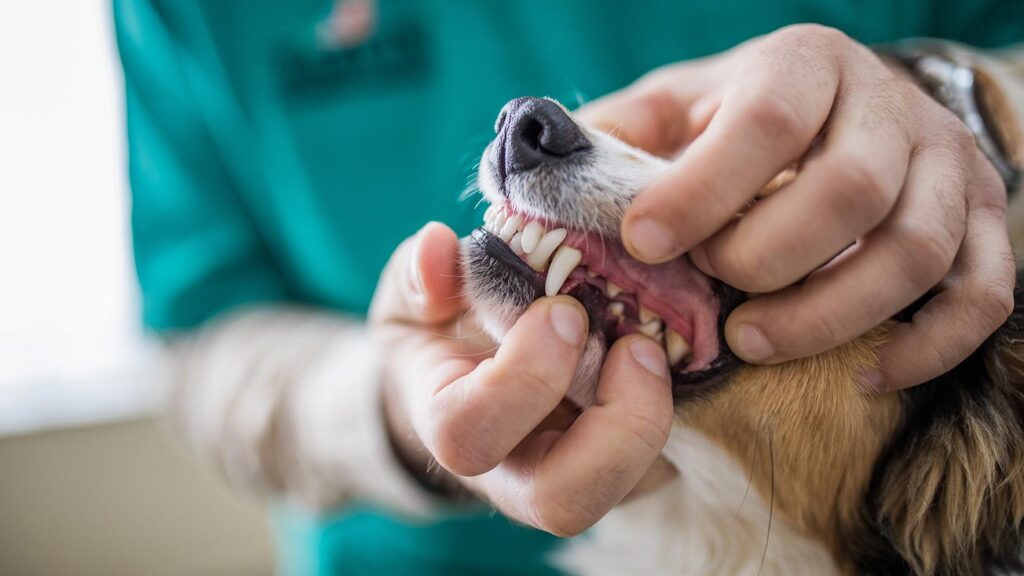Does Pet Insurance Cover Dental Care?

Photo by skynesher/E+
If you’re wondering whether pet insurance covers dental care, the answer is: It depends.
Coverage for dental care varies widely by provider and plan. Some policies cover dental illnesses and accidents, while others only reimburse for routine cleanings through an optional wellness add-on.
If you’re searching for pet insurance that covers dental care, it’s important to refer to the policy documents and understand how each plan treats both preventive and emergency dental needs.
Let’s explore the details so you can choose the right coverage for your furry family member.
Key Takeaways
- Some pet insurance plans cover dental accidents and illnesses, while routine cleanings often require a wellness add-on.
- Preventive care history may be required to qualify for dental illness coverage.
- Some wellness plans can help offset the cost of cleanings, exams, and dental X-rays.
- Always refer to the policy documents to confirm what’s excluded, especially for pre-existing or breed-specific dental conditions.
Pet Dental Coverage for Accidents and Illnesses
Pet insurance plans typically cover dental injuries resulting from accidents—think chipped or broken teeth from chewing on something hard, or trauma from a fall. This type of coverage is usually included in standard accident-only or accident and illness policies.
When it comes to dental illnesses, coverage becomes more nuanced. Many providers offer coverage–either as a standard benefit of their accident and illness policies or as an optional add-on –for treatments for conditions like:
- Tooth abscesses
- Gum disease (periodontal disease)
- Oral tumors
- Infections caused by broken teeth
To qualify for this type of coverage, your pet may need to have had regular dental exams and cleanings prior to diagnosis. Without documented preventive care, some providers may deny the claim—even for treatable dental conditions.
If you’re shopping for pet insurance that includes dental care, check prospective policies to determine whether dental illness is explicitly listed in the covered services.
Pet Dental Coverage for Routine Dental Cleanings
Routine dental cleanings, while essential to your pet’s health, are generally not covered by standard pet insurance policies. However, many companies offer wellness add-ons that may reimburse for preventive services like:
- Routine dental cleanings
- Annual exams
- Dental X-rays (when part of the cleaning)
- Fluoride treatments
These wellness plans typically have the following characteristics:
- Fixed benefit: The plan pays a set amount toward the procedure.
- Reimbursement structure: You pay upfront and submit a claim to get reimbursed.
- Tiered coverage: Some providers offer multiple levels of wellness coverage, with neutering included only in higher-tier plans.
If keeping up with your pet’s preventive care is a priority, look for wellness plans or add-ons that includes dental cleanings as part of a wellness add-on. These can help offset the cost of yearly care and reduce the risk of future dental issues.
What Dental Care Is Not Covered by Pet Insurance?
Even with maximum coverage from pet insurance, there are still limitations. Most plans exclude:
- Pre-existing dental conditions: If your pet already has dental disease before you enroll, it likely won’t be covered.
- Cosmetic procedures: Teeth whitening or aesthetic dental adjustments are not usually covered.
- Orthodontic treatment: Braces or bite corrections are rare in veterinary care and are generally excluded.
- Breed-related dental issues: Some breeds are prone to dental crowding or retained baby teeth. These conditions may be excluded from insurance coverage, depending on the provider.
Reading the exclusions section of any policy is crucial, especially if your pet is older or belongs to a breed known for dental problems.
Why Dental Care Matters for Your Pet
Dental health plays a critical role in your pet’s overall wellness. Without regular cleanings and checkups, pets can develop periodontal disease, which can lead to:
- Painful infections
- Tooth loss
- Difficulty eating
- Bacteria entering the bloodstream, potentially affecting the heart, liver, or kidneys
Routine dental care helps prevent these complications and can extend your pet’s lifespan. That’s why incorporating dental coverage—whether through a wellness plan or an insurance policy that includes treatment for dental disease—can be a smart decision.
Common Dental Procedures and Their Costs
Pets may need a variety of dental procedures over their lifetime. Here are a few common ones and their estimated costs without insurance:
- Routine cleaning and exam: $100–$2,000 (includes anesthesia)
- Tooth extraction: $50–$500 per tooth
- Dental X-rays: $40–$500
- Root canal: $600–$3,000
These costs vary by location, vet, and other variables. They can also increase with your pet’s age or if they have complicating conditions. Some breeds, like Chihuahuas or Greyhounds, are genetically predisposed to dental disease, which may lead to more frequent or intensive dental care.
When comparing pet insurance options for dental coverage, consider your pet’s breed and age and ask whether cleanings, extractions, or follow-up visits are covered.
How To Find the Best Pet Insurance with Dental Coverage
To find the right plan, ask these key questions:
- Does the plan cover dental illnesses and accidents as a standard benefit or an optional add-on?
- Are routine dental cleanings available through a wellness add-on?
- Are there requirements, like proof of annual cleanings, to qualify for coverage?
- What is the reimbursement rate and annual coverage cap for dental care?
If you’re specifically searching for pet insurance that includes dental care, prioritize providers that clearly list dental disease and routine care as part of their offerings.
To learn more about how pet insurance can help protect your pet or to get a personalized quote, visit CarePlus by Chewy. You can also speak directly with one of our licensed experts at 800-672-4399, who will be happy to answer any questions you might have.
Attributions
This article was created with assistance from AI tools. The content has been reviewed for accuracy and edited by a human.




